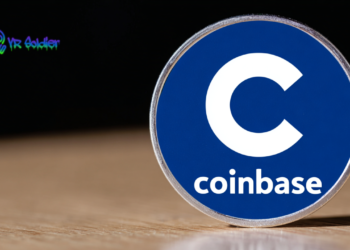One of the most-awaited token distributions faced backlash on social media due to its unique token allocation strategy. Jupiter’s (JUP) tokens have generated substantial trading volumes and gained thousands of holders, following a substantial $700 million airdrop to Solana ecosystem users that raised concerns about its distribution approach. At the time of this writing, the token was traded at 57 cents, resulting in a market capitalization slightly above $800 million, as per data. Jupiter operates as a decentralized exchange (DEX), directing orders to various other Solana-based exchanges to execute the best available price for an asset.
Airdrop Rewards Criticism
On Wednesday, the DEX rewarded its users with JUP tokens through an airdrop based on their platform activity. Simultaneously, it offered the tokens on the open market via a trading pool, enabling investors to purchase JUP and airdrop recipients to sell their newly acquired tokens.The trading pool allowed Jupiter to offer tokens within a specific price range, driven by market forces and the platform’s liquidity attraction over time, according to technical documents.
However, this strategy faced criticism from some crypto market observers, likening the pool sales to an Initial DEX Offering (IDO) rather than an airdrop. While an airdrop rewards users by providing them tokens, an IDO typically involves the developer team selling their holdings to market participants.
Jupiter’s trading pool approach is accused of being an IDO masked as a fair market pool, with some claiming the developer team sold over $200 million worth of JUP tokens through the market pool.
The controversy led to a decline in prices to as low as 56 cents on Thursday, according to Birdeye price data.
Founder Clarifies The Situation

However, most of these allegations were dismissed as “blatantly false” by Jupiter founder Weremeow, who clarified across multiple posts on X that the sale’s mechanism for the airdrop had been mischaracterized.
This fud is blatantly false.
1) The launch pool is there for 7 days to absorb any selling pressure from airdrops or buyer’s remorse, which I believe to be sufficiently long. Conversely, new buyers have confidence that there is a buffer for selling pressure as well.
Think about… https://t.co/WXDpYwg0kL
— meow 🥧 (@weremeow) February 1, 2024
Another rumour suggested that Jupiter might withdraw the liquidity it provided seven days after issuance, leading some to label it a “rug pull.” However, this rumour was swiftly debunked. “The launch pool is there for 7 days to absorb any selling pressure from airdrops or buyer’s remorse, which I believe to be sufficiently long,” Meow stated on Thursday. “Conversely, new buyers have confidence that there is a buffer for selling pressure as well.”
All tokens in the pool would remain in the team treasury or be used for further liquidity provision in the future, as per a separate X post. The sale served as a trial for Jupiter’s LFG launchpad, a planned platform allowing the project to issue tokens to Solana users in the future, Meow explained.












